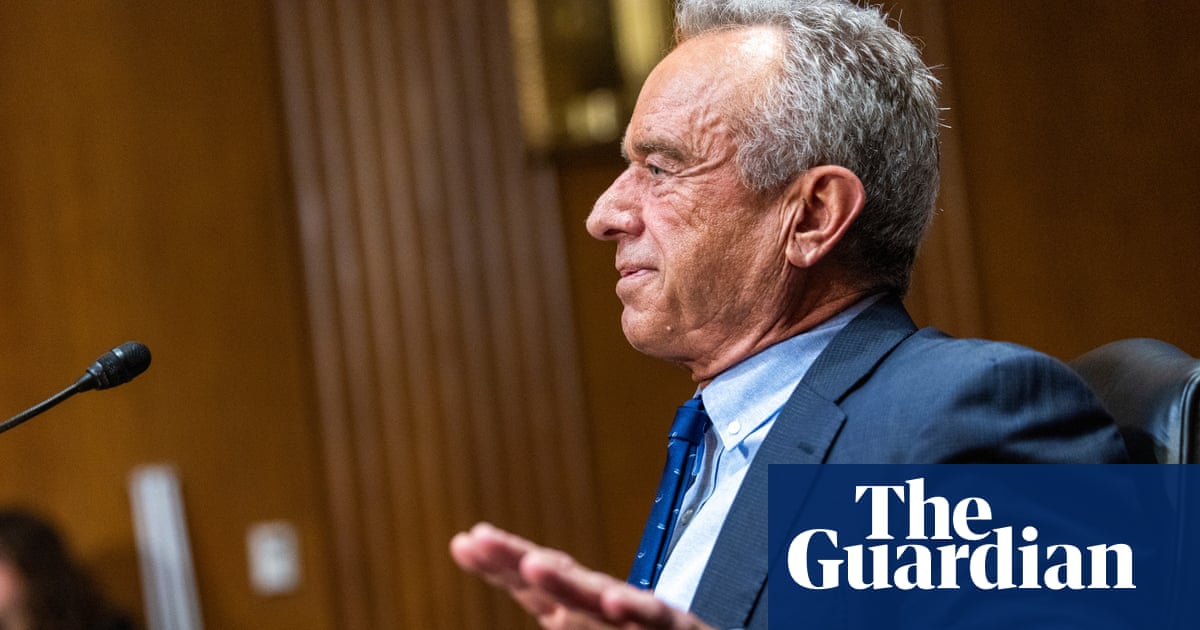As they prepared to view some of the most lethal weaponry on the planet, Chinese leader Xi Jinping and Russian President Vladimir Putin mused about the wonders of medicine, the possibility of trading in old organs for new ones and even living to the age of 150 in an exchange caught on a hot mic that drew wide attention.
“Some predict that in this century, humans may live up to 150 years,” Xi said through an interpreter.
More than 7,000 miles from the high-level meeting in Beijing, Steven N. Austad, an expert on aging at the University of Alabama at Birmingham read the comments and thought back to his $1 billion wager with another longevity expert, S. Jay Olshansky, a professor in the School of Public Health at the University of Illinois at Chicago.
In 2001, Austad told a reporter that he thought the first person to live to 150 was already alive.
“Olshansky read it and immediately phoned me to ask if I was serious (we had been friends for a while already),” Austad recalled by email. “We didn’t actually put up $500 million each. We’re both academics after all. We each put up $150 (apt, yes?). Jay figured that if it were invested and grew at the historical rate of growth of the Stock Market, it would be worth $500 million by 2150.”
Olshansky, who published a paper last fall on the “Implausibility of radical life extension in humans in the twenty-first century,” remains confident that his $500 million is safe. “There is almost no chance of anyone alive in the year 2000 living to 2150,” he wrote by email. “Even if an aging intervention came online today, the person to receive it would already be at least 25 years old; and then you would have to get lucky enough to find the needle in the haystack of people that won the genetic lottery at birth.”
Ripe old age ― and we’re talking 110 and older ― remains a factor of good genes, a war-free homeland and a healthy lifestyle, as well as access to doctors and the means to pay them, experts said. Only an estimated .03 percent of Americans reach 100, according to the U.S. Census Bureau. The nonprofit Gerontology Research Group, which tracks and validates those 110 and older, lists 5,153 in its worldwide database.
Pinchas Cohen, dean of the Leonard Davis School of Gerontology at the University of Southern California, said that while average life expectancy has increased dramatically over the last century, much of that has come from reducing mortality early in life. Vaccines rescue children from diseases such as measles, mumps, rubella, polio and whooping cough. Better treatments help people survive longer through chronic ailments of adulthood, such as heart disease, diabetes and cancer.
“The maximum life expectancy has not risen,” Cohen said, explaining that in recent years the oldest living person has generally been between the ages of 112 and 117. “There is no evidence anyone is going to exceed 120.”
The current longevity record is held by the French woman Jeanne Calment, who died in 1997 at the age of 122 (while some have questioned Calment’s actual age, two scholars have detailed the supporting evidence).
Cohen said living to 150 “appears to be very unlikely at this point, but that doesn’t take away from the progress that has taken place in the field that will allow us to live longer than our parents did.” Diabetes medications, such as SGLT2 inhibitors, and anti-obesity medications, such as Ozempic, Wegovy and Zepbound, have helped extend lives, but by single years, not decades.
The best ways for people to extend their own lives, Cohen said, “is by following some very basic lifestyle [guidelines] related to diet, exercise and sleep.”
“Age to 140? Laughable,” texted Douglas E. Vaughan, director of the Potocsnak Longevity Institute at Northwestern University, though he did note the discovery of a genetic variant in an Old Order Amish population that lives in and around Adams County, Indiana. But the variant, “which protects against diabetes and cardiovascular aging, only adds 10 years to lifespan,” Vaughan wrote.
During the exchange in Beijing, Putin weighed in, saying: “People can keep getting organ transplants. … You might look younger as you live, and you might even achieve immortality.”
Medicine has made significant advances in the transplantation of organs and tissues, with the notable exception of the brain.
“The idea that we could replace our organs one at a time as they fail and so live forever, has been around for at least a couple of centuries,” Austad said, “and we are certainly getting better at replacing failing hearts, kidneys, and so on. But this is a ‘bean bag’ view of the human body, replace a bad bean with a better one. Replace the oil filter, then the spark plugs, etc.”
“But as in a car, it eventually crashes up against some brutal reality,” he added.
While organ transplants can extend life, they come with the risk of rejection or harm from the medications intended to prevent rejection.
Even our cells, “and the way they function, things deplete over time,” said Keri Althoff, a professor of epidemiology at the Johns Hopkins Bloomberg School of Public Health.
The human immune system wears down, and older adults need vaccines and boosters “to remind it how to fight infectious diseases that really can land them in the hospital or worse,” Althoff said.
She and other experts stressed that more important than lifespan is what’s known as healthspan, a term for living well.
And maybe living well requires a recognition, whether it’s two world leaders chatting before a display of weapons, or two researchers placing a friendly wager, that human decline remains merciless.
Related Content
At 85, she leads a squad of women who dive deep in ponds for litter
Inside the Democratic plan to recapture the House majority in 2026
Art as activism: The music and murals of Kenya’s youth-led protests

 German (DE)
German (DE)  English (US)
English (US)  Spanish (ES)
Spanish (ES)  French (FR)
French (FR)  Hindi (IN)
Hindi (IN)  Italian (IT)
Italian (IT)  Russian (RU)
Russian (RU)  5 hours ago
5 hours ago
























Comments